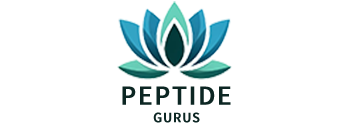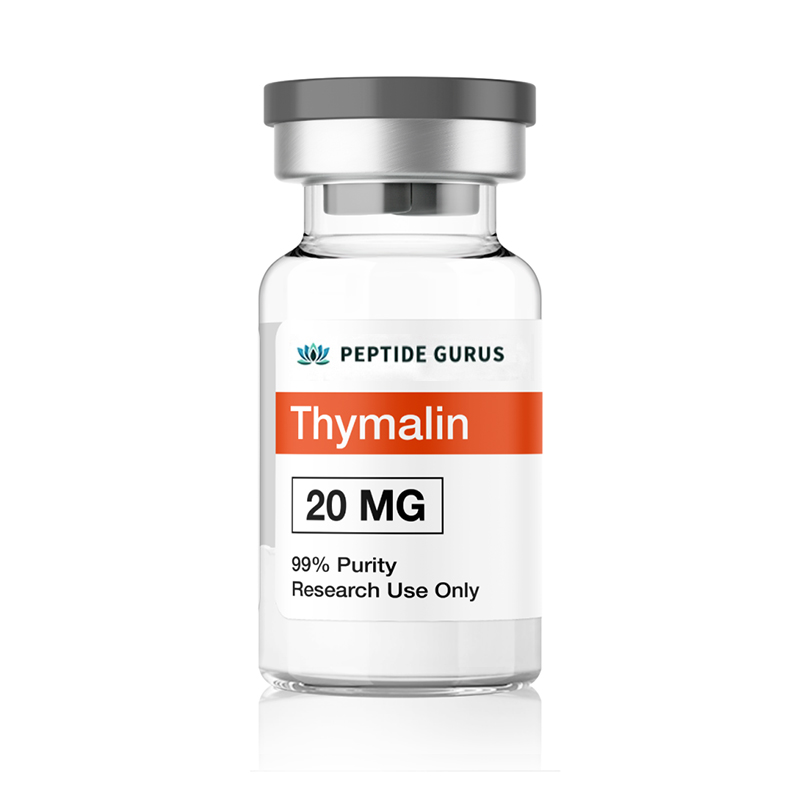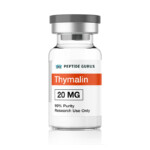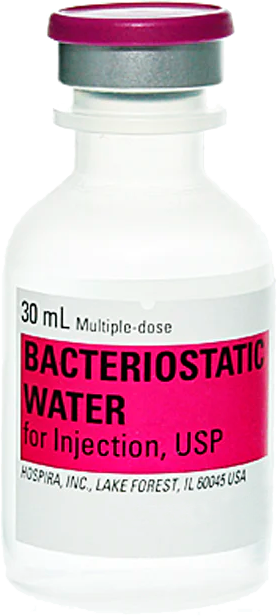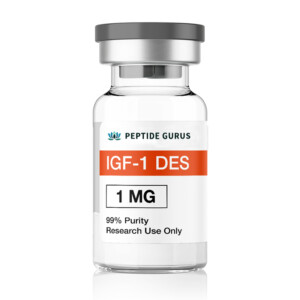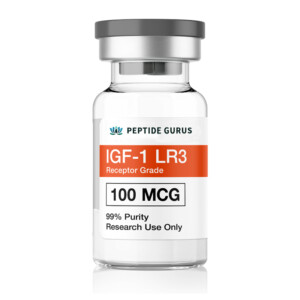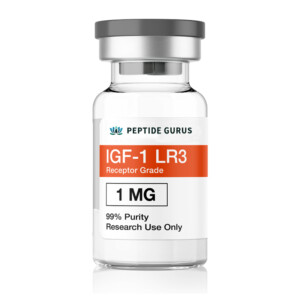Gratis (1) 30 ml de agua bacteriostática
con pedidos calificados sobre $500 Dólar estadounidense.
(excluye productos en cápsulas, péptidos cosméticos, códigos promocionales y envío)
Thymalin is a synthetic version of Thymulin, which is involved in regulating inflammation and pain. Research shows that Thymalin may be effective in boosting immune function, fighting heart disease, and regulating sleep-wake cycles. It is also of interest in aging research for its ability to reduce all-cause mortality in mouse models and prolong lifespan.
Uso del producto: Este PRODUCTO ESTÁ DISEÑADO ÚNICAMENTE COMO QUÍMICO DE INVESTIGACIÓN. Esta designación permite el uso de productos químicos de investigación estrictamente para pruebas in vitro y experimentación de laboratorio únicamente.. Toda la información del producto disponible en este sitio web es solo para fines educativos.. La introducción corporal de cualquier tipo en personas o animales está estrictamente prohibida por la ley.. Este producto sólo debe ser manipulado por personal autorizado., profesionales cualificados. Este producto no es un medicamento., alimento, o cosmético y no puede estar mal etiquetado, mal utilizado o mal etiquetado como droga, comida o cosmética.
What Is Thymalin?
Thymalin is the synthetic version of thymulin, which was isolated from the thymus in 1977. Thymalin has been shown to play a role in regulating inflammation and pain, has neuroprotective effects, and is important in immune function. Early research revealed that thymalin and other extracts of the thymus and pineal gland can prolong life.
Thymalin Structure
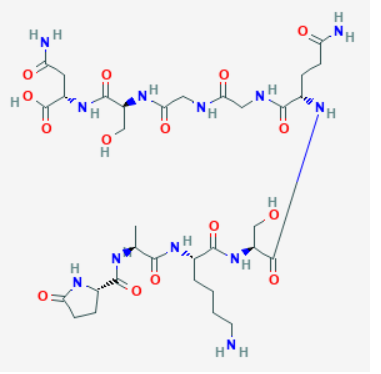
Secuencia: Pyr-Ala-Lys-Ser-Gln-Gly-Gly-Ser-Asn
Fórmula molecular: C33h54norte12oh15
Peso molecular: 858.864 g/mol
PubChem CID: 3085284
Número CAS: 63958-90-7
Sinónimos: Thymulin, Thymic Factor, Nonathymuli, Facteur Thymique Serique, Serum Thymic Factor
Thymalin Research
Thymalin Research and Life Extension
Research in Russia at the turn of the 21st century revealed that thyamlin has a normalizing effect on a number of baseline physiologic functions in elderly adults. Older adults in the study experienced improvements in cardiovascular, immune, and nervous system function. They also showed improved metabolism as well as a trend toward homeostasis typical of a much younger person. En general, the study revealed major decreases in acute respiratory disease, hipertensión, osteoporosis, ischemic heart disease, and symptoms of arthritis. There was a 2-fold reduction in the mortality rate in the population taking thymalin over the course of the trial[1].
Thyamlin appears to by synergistic with certain other thymic and pineal gland isolates, decreasing mortality rate by as much as 4-fold when combined with epithalmin[2]. This is not surprising given that both the thymus and pineal gland have been linked to one another in the aging process. De hecho, the pineal gland, when functioning optimally, protects the thymus from the degenerative effects of age[3].
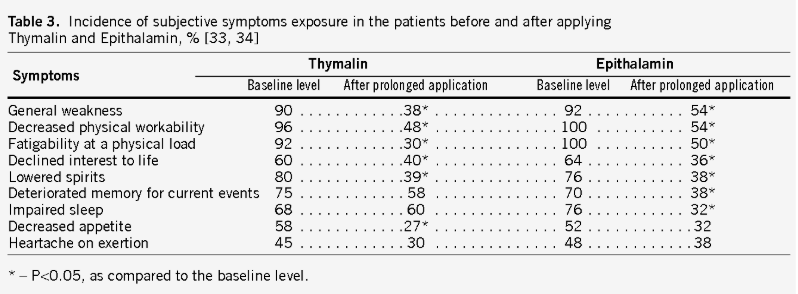
Fuente: Académico semántico
Thymalin Research and Immune System Function
A great deal of research into the effects of thymalin on the immune system has revealed that the peptide primarily alters cellular immunity, changing levels of lymphocyte subpopulations, affecting T-cell differentiation, and altering natural killer (NK) cell activity[4], [5]. This is important as a number of chronic medical conditions, such as diabetes, lead to imbalances in cellular immunity that slowly evolve into serious immunosuppression with resultant increased susceptibility to everything from infection to cancer.
In patients with diabetic retinopathy, administration of thymalin leads to immune correction and a proliferation of T-lymphocytes, which in turn leads to decreased inflammation and slower progression of t he disease[6]. This same benefit may apply in the chronic immunodeficiency/immune dysregulation of HIV. The combination of highly active anti-retroviral therapy (TARDE) with thymalin may even to reverse damage to the immune system and increase numbers of CD4+ T-cells in patients with HIV[7].
Thymalin is also being investigated as a potential adjuvant to an HIV vaccine as research indicates that it can boost T-cell responses to vaccines and lead to greater protection. This function of thymalin may make it one of the most important vaccine adjuvants ever developed, allowing for vaccines to be administered less often and/or in lower doses using less virulent pathogens[8]. This could make vaccines safer and more effective.
Research in rats that have undergone removal of the thyroid gland indicates that they usually experience a decline in thymic function followed by loss of weight and reductions in cell proliferation. Administration of thymalin appears to reverse these changes or prevent them from occurring in the first place. The net results are improved immune function, reduced risk of infection, and overall better health[9].
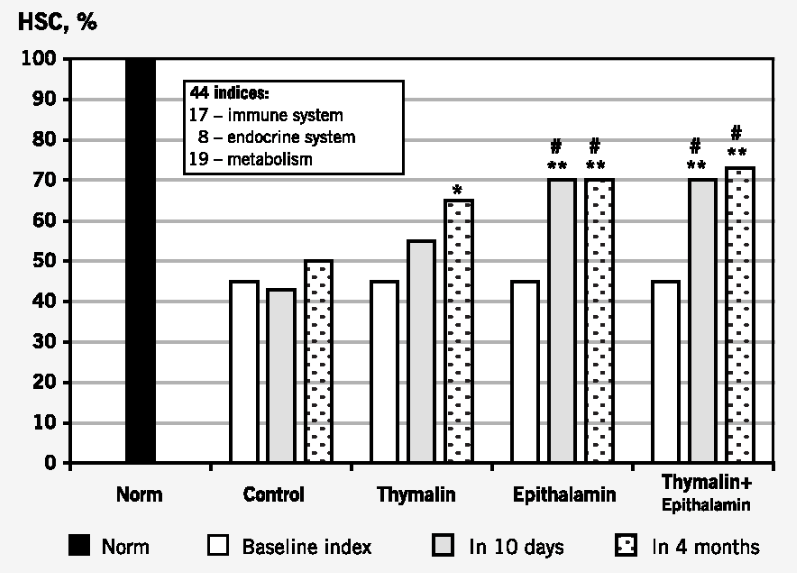
Fuente: Académico semántico
Thymalin Research and Cancer
Research in mice shows that thymalin may be an effective adjuvant to pulsed laser radiation used to treat certain types of cancer. Neodymium lasers are frequently used to treat cancerous and precancerous skin lesions (including melanoma) with moderate to high rates of success[10]. The technique is particularly useful for preventing metastasis[11]. The benefits of pulsed laser therapy may be extended, sin embargo, through the simultaneous administration of thymalin, which has been shown to boost numbers of antibody producing cells in the spleen when administered in conjunction with laser therapy[12]. It is thought that this may have a greater suppressive effect on the tumor and help to achieve higher rates of remission or cure.
Thymalin need not be combined with laser therapy to have an effect on cancer, sin embargo. Research in rats shows that sub-therapeutic doses of thymalin have significant anti-tumor effects, causing tumor growth arrest in nearly 80% of cases and regression of the tumor in more than half of the animals in the experiment[13].
Thymalin has also shown benefit in the treatment of chronic lympholeukemia when combined with plasmapheresis. In this setting, the peptide/plasmapheresis combination is more effective at producing hematological compensation than standard chemotherapeutic agents. The treatment also improved activity in the lymphoid system[14]. En otras palabras, thymalin hastens the return of the blood system to a state of homeostasis when combined with plasmapheresis and leads to more rapid clinical and blood-based measures of remission[15].
Thymalin and Psoriasis
Psoriasis is a specific inflammatory condition that affects the skin and joints. Combining standard treatments for psoriasis with thymalin has been shown in clinical studies to result in improved laboratory measures of the condition. Importantly, these improvements in laboratory measures of psoriasis activity correlate well with improvement in a patient’s clinical status[16]. This indicates that thymalin has a measurable, observable effect on the status of the disease.
Thymalin Research and Tuberculosis
Research in patients with severe progressive pulmonary tuberculosis were given standard antibiotic therapy or antibiotic therapy plus thymalin. The groups given thymalin showed substantial increases in rates of clinical cure compared to their antibiotic-only counterparts. Even more encouraging was that specifically tailoring the thymalin/antibiotic therapy to the needs of the patient resulted in a nearly 95% cure rate[17]. This is important as tuberculosis is becoming increasingly resistant to standard and even experimental antibiotic regimens that include anywhere from one to four separate antibacterial drugs. Thymalin is particularly effective if given early in the course of the infection[18].
These findings should come as no surprise given that patients with severe tuberculosis show higher depression of cellular immunity as measured by T-cell numbers. Not only are the T-cells less numerous in this population, they are less capable of blast-transformation. When combined with an immunosuppressive disease, like diabetes, the decline in cellular immunity is even more dramatic[19]. Thymalin appears to be able to rescue the immune system in this setting, allowing the body to more effectively fight off infection.
Thymalin Fights Kidney Disease
Research indicates that patients suffering from the inflammatory kidney disease chronic glomerulonephritis may benefit from thymalin administration. In a clinical study of Russia patients, individuals treated with thymalin showed improvements in kidney function and blood indicies of inflammation. They also showed improvements in immunologic measurements of the disease that may lead to an overall decrease in damage to the kidney and thus remission or, por lo menos, a delay in the time to dialysis/transplant[20].
Thymalin and Circadian Rhythm Disturbances
Evidence from rats has linked changes in thymic factors to changes in circadian rhythms, which, Sucesivamente, have been linked to changes in cellular and humoral immunity. The research suggests that seasonal changes in the day-night cycle alter peak levels of thymus function, resulting in suppression of the immune system. This finding, which includes changes in antibody levels, may indicate why colds and the flu are so much more common during the shorter days of winter. It also may explain why the elderly are more prone to infection as we often experience changes in their circadian rhythm as we age. Administration of thymalin does not reset circadian cycling, but it does correct the immune deficiency associated with changes in sleep-wake cycles[21]. This may make thymalin an effective way of preventing infection, perhaps more effective even than some vaccines, like the flu vaccine.
Thymalin Research and Heart Disease and Atherosclerosis
Heart disease is easier to prevent than it is to treat. Once present, heart disease can only be reversed through extreme dieting and even then the process takes a great deal of time and dedication. Research in rabbits indicates that thymalin may both prevent and reverse heart disease by reducing lipid levels and by directly affecting the lymphocytes responsible for removing plaque from the walls of arteries. Research suggests that thymalin normalizes T-cell suppressor activity and sensitivity to the very things that cause atherosclerosis in the first place, reducing or eliminating the immune dysfunction that leads to plaque formation[22]. En breve, thymalin appears to reduce the dysfunction that normally causes the immune system to fail to combat heart disease.
Thymalin Research and Postoperative Risk and Complications
Research out of Russia indicates that thymalin may be an effective means of preventing infection and inflammatory complications following surgery[23]. Besides blood clots, infection is the single largest complication of sugery. Infection, particularly following orthopedic surgery, is a major cause of death in postoperative patients. Anything that reduces the risk of postoperative infection could be a major boon for healthcare, making it possible to operate on patients that might otherwise be deemed too high of a risk and reducing the adverse event rate associated with major surgical procedures.
Thymalin Research and Gum Disease
Periodontitis is an inflammation of the gums and the structures that support the teeth. It can be painful, but is, more importantly, a common cause of tooth loss. Periodontitis is an easy condition to prevent with regular visits to the dentist and proper oral hygiene, but is very difficult to treat once it is established. Research suggests that thymalin can reduce inflammation in this setting and boost the appropriate cellular immune components necessary for combating the bacteria that are the root cause of periodontitis[24].
Thymalin Research and Anorexia
Changes in the circulating levels of thyroid hormones are quite common in the setting of anorexia nervous. This is thought to lead to changes in peripheral lymphocyte levels and to the depression of immune function often seen in this population. Administration of thymalin appears to counteract the immune changes of anorexia nervous and may even help to reverse the thymic atrophy seen in these patients[25]. It is important to note that, because thymalin requires zinc to function, patients with anorexia would require zinc supplementation in addition to thymalin to ensure maximum function. Clinical research is ongoing.
Thymalin and Immune Regulation
Investigación, so far, has revealed that the major benefits of thymalin are primarily a consequence of the peptide’s impact on cellular immune function. By boosting cellular immunity, particularly the function of T-cells, thymalin helps to restore normal balance to the body in ways that fight infection, reduce cancer progression, ward off heart disease, and reduce levels of inflammation and dysfunction. Though research is ongoing, some clinical uses of thymalin have already been standard therapy for years. There is even hope that thymalin may help to boost the effectiveness of both vaccines and antibiotics, something that cannot come to soon in a world plagued with an ever-growing number of drug-resistant superbugs.
Thymalin exhibits minimal side effects, baja biodisponibilidad oral y excelente subcutánea en ratones. La dosis por kg en ratones no se aplica a los humanos. Thymalin for sale at Peptide Sciences is limited to educational and scientific research only, no apto para consumo humano. Only buy Thymalin if you are a licensed researcher.
Autor del artículo
La literatura anterior fue investigada, editado y organizado por el Dr.. logan, MARYLAND. Dr. Logan tiene un doctorado de Facultad de Medicina de la Universidad Case Western Reserve y una licenciatura. en biología molecular.
Scientific Author
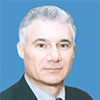
Profe. Vladimir Khavinson is being referenced as one of the leading scientists involved in the research and development of Thymalin. De ninguna manera este médico/científico respalda o defiende la compra, venta, o uso de este producto por cualquier motivo. No hay afiliación o relación., implícito o no, entre Peptide Sciences y este médico. El propósito de citar al médico es reconocer, reconocer, y damos crédito a los exhaustivos esfuerzos de investigación y desarrollo realizados por los científicos que estudian este péptido.. Profe. Vladimir Khavinson aparece en [1] [2] [20] y [24] bajo las citas referenciadas.
Citas referenciadas
- V. k. Khavinson and V. GRAMO. Morózov, “Peptides of pineal gland and thymus prolong human life,” Neuroendocrinol. Letón., volumen. 24, No. 3–4, páginas. 233–240, Ago. 2003.
- V. k. Khavinson and V. GRAMO. Morózov, “[Geroprotective effect of thymalin and epithalamin],” Adverbio. gerontol. Uspekhi Gerontol., volumen. 10, páginas. 74–84, 2002.
- norte. S. soy duro, V. oh. Poliakova, I. METRO. Kvetnoĭ, A. V. Trofimov, y norte. norte. Sevost’ianova, “[Characteristics of the pineal gland and thymus relationship in aging],” Adverbio. gerontol. Uspekhi Gerontol., volumen. 24, No. 1, páginas. 38–42, 2011.
- j. Bach, METRO. Bardenne, j. Pleau, y j. Rosa, “Biochemical characterisation of a serum thymic factor,” Nature, volumen. 266, No. 5597, páginas. 55–57, Mar. 1977.
- A. METRO. Reznichenko, V. PAG. Fesenko, D. V. Shestopalov, y P. A. Tatarchuk, “[Changes in cell immunity indexes under the influence of thymalin, thyroxine and fibronectin in patients with hyperplastic diseases of thyroid gland before and after the surgery]," Cuña. Khir., No. 12, páginas. 31–33, Dic. 2001.
- h. D. Zhaboiedov, norte. h. Bychkova, R. l. Skrypnik, y M. V. Sydorova, “[Evaluation of cellular and humoral immunity and individual sensitivity of T-lymphocytes to immunocorrectors in patients with diabetic retinopathy],” Lik. Sprava, No. 1, páginas. 53–56, Feb. 2001.
- t. PAG. Young, “Immune mechanisms in HIV infection," J.. Asociación. Nurses AIDS Care JANAC, volumen. 14, No. 6, páginas. 71–75, Dic. 2003.
- mi. Montomoli, S. Piccirella, B. Khadang, mi. Mennitto, R. Camerini, y un. De Rosa, “Current adjuvants and new perspectives in vaccine formulation,” Expert Rev. Vaccines, volumen. 10, No. 7, páginas. 1053–1061, Jul. 2011.
- I. I. Hrinevych, h. D. Bendiuh, norte. METRO. Khranovs’ka, I. METRO. Bilokin’, and O. METRO. Ostapenko, “[Effect of thyroxin and thymalin on proliferation and apoptosis of thymocytes in rats after thyroidectomy],” Fiziolohichnyi Zhurnal Kiev Ukr. 1994, volumen. 50, No. 3, páginas. 39–43, 2004.
- A. PAG. Kozlov and K. GRAMO. Moskalik, “Pulsed laser radiation therapy of skin tumors,” Cancer, volumen. 46, No. 10, páginas. 2172–2178, Nov. 1980.
- R. I. Wagner, A. PAG. Kozlov, y k. GRAMO. Moskalik, “Laser radiation therapy of skin melanoma,” Strahlentherapie, volumen. 157, No. 10, páginas. 670–672, Oct. 1981.
- k. GRAMO. Moskalik, “[Effect of thymalin and epithalamin on the metastasis of experimental tumors irradiated with pulsed laser radiation],” Vopr. Onkol., volumen. 33, No. 1, páginas. 57–62, 1987.
- GRAMO. V. Zhukova, A. I. Schikhlyarova, t. A. Barteneva, A. norte. Shevchenko, y f. METRO. Zakharyuta, “Effect of Thymalin on the Tumor and Thymus under Conditions of Activation Therapy In Vivo," Toro. Exp. biol. Con., volumen. 165, No. 1, páginas. 80–83, Puede 2018.
- norte. norte. Tretiak, t. F. Babenko, S. norte. Gaĭdukova, A. S. Zverkova, y S. PAG. Beschastnaia, “[The efficacy of using thymalin and plasmapheresis in the combined treatment of patients with chronic lympholeukemia],” Lik. Sprava, No. 2, páginas. 93–96, Abr. 1998.
- t. F. Babenko, V. t. Antonenko, y M. F. SkuratovskiUi, “[Thymalin in the combined treatment of patients with chronic lympholeukemia],” Vrach. Delo, No. 3, páginas. 47–49, Mar. 1989.
- METRO. PAG. Isaeva, GRAMO. B. Budazhabon, y B. I. Kuznik, “[The effect of thymalin on indices of immunity and hemostasis in patients with disseminated forms of psoriasis],” Vestn. dermatol. Venerol., No. 10, páginas. 42–43, 1989.
- A. A. Maslennikov, V. F. Kamenev, y V. METRO. Kolomiets, “[Immunological correction in progressive pulmonary tuberculosis],” Probl. Tuberk. Bolezn. Legk., No. 9, páginas. 30–33, 2007.
- l. A. Ivanova, “[The use of thymalin in the combined chemotherapy of patients with infiltrative destructive pulmonary tuberculosis],” Vrach. Delo, No. 10, páginas. 57–59, Oct. 1989.
- METRO. A. Karachunskiĭ, V. I. Gergert, and O. B. Iakovleva, “[Specific features of cellular immunity of pulmonary tuberculosis in patients with diabetes mellitus],” Probl. Tuberk., No. 6, páginas. 59–60, 1997.
- GRAMO. V. Budazhabon, B. I. Kuznik, V. GRAMO. Morózov, norte. norte. Orlova, y V. k. Khavinson, “[Immunogenesis and hemostasis in patients with exacerbated chronic glomerulonephritis treated with thymalin],” Ter. Arkh., volumen. 56, No. 10, páginas. 62–66, 1984.
- I. F. Labunets’, “[Age-related changes in circadian and circannual fluctuations of the immune response and the number of cells in lymphoid organs of animals: a possible connection to thymic factors],” Fiziolohichnyi Zhurnal Kiev Ukr. 1994, volumen. 47, No. 5, páginas. 54–62, 2001.
- V. mi. Ryzhenkov, R. PAG. Ogurtsov, V. V. Trubacheva, V. GRAMO. Popov, y V. PAG. Puzyreva, “[Effect of thymalin on the development of experimental hyperlipidemia and atherosclerosis],” Vopr. Con. Química., volumen. 34, No. 1, páginas. 51–56, Feb. 1988.
- z. S. Zhumadilov and R. PAG. Terekhova, “[Use of thymalin for preventing postoperative suppurative and inflammatory complications]," Cuña. Khirurgiia, No. 1, páginas. 36–38, Ene. 1985.
- B. I. Kuznik, V. k. Khavinson, V. GRAMO. Morozova, GRAMO. B. Budazhabon, y norte. GRAMO. Budazhabon, “[Use of thymalin in treating periodontitis patients],” Stomatologiia (Sofiia), volumen. 64, No. 1, páginas. 20–22, Feb. 1985.
- S. Wade et al., “Thymulin (Zn-facteur thymique serique) activity in anorexia nervosa patients," Soy. j. clin. Nutr., volumen. 42, No. 2, páginas. 275–280, Ago. 1985.
TODOS LOS ARTÍCULOS E INFORMACIÓN DE PRODUCTOS PROPORCIONADOS EN ESTE SITIO WEB SON SÓLO PARA FINES INFORMATIVOS Y EDUCATIVOS.
Los productos ofrecidos en este sitio web se proporcionan únicamente para estudios in vitro.. Estudios in vitro (latín: en cristal) se realizan fuera del cuerpo. Estos productos no son medicamentos ni fármacos y no han sido aprobados por la FDA para prevenir, tratar o curar cualquier condición médica, dolencia o enfermedad. La introducción corporal de cualquier tipo en personas o animales está estrictamente prohibida por la ley..
